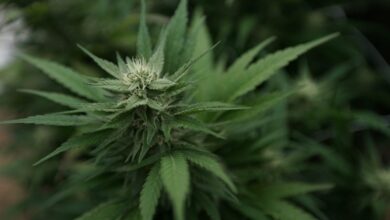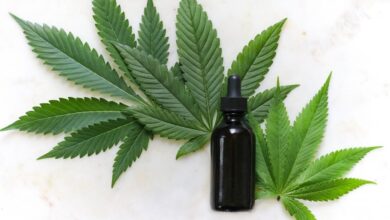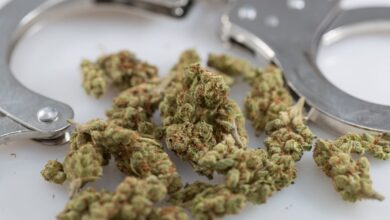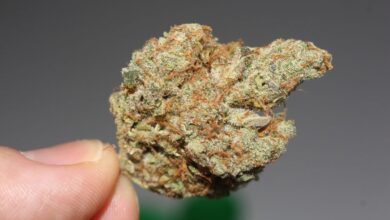RFK Jr. Says Marijuana Can Have ‘Catastrophic Impacts’ On Consumers, But State-Level Legalization Can Spur Research On Its Harms And Benefits

Recent off his Senate affirmation vote to change into the secretary of the U.S. Division of Well being and Human Providers, Robert F. Kennedy Jr. mentioned on Thursday that he’s “apprehensive about” the normalization of high-potency marijuana and that he feels its use can have “actually catastrophic impacts” on folks, however that state-level legalization can facilitate analysis into its harms and advantages.
Kennedy, who was vocal about his assist for marijuana legalization when he was operating for president—in addition to throughout his time on the Trump transition staff—has been notably silent on hashish coverage points over current months as he labored to win over senators to safe affirmation for the nation’s high well being function.
Now, throughout his first main media interview since receiving that remaining vote to safe the cupboard place earlier within the day, Kennedy instructed Fox Information’s Laura Ingraham that he believes hashish does maintain critical hurt potential.
The HHS secretary, who personally struggled with drug dependancy throughout his youth, was requested about his hashish coverage place and famous that he’s been in restoration for over 40 years and attends each day 12-step conferences.
“I hear tales on a regular basis of the impacts of marijuana on folks—and the actually catastrophic impacts on them,” he mentioned.
Nevertheless, Kennedy mentioned “that fear additionally needs to be balanced [with] the impacts that we’ve had earlier than” because it pertains to criminalization.
“Twenty-five states [have] now legalized marijuana, however we had a couple of third of our jail inhabitants that was in jail due to marijuana offenses,” he mentioned. “That’s one thing we don’t need both.”
“Due to the legalization of leisure marijuana in 25 states, we’ve got now a capability to actually examine it and to check it to states,” he said. “We have to do research. We have to determine it out, after which we have to we have to implement insurance policies to deal with” any well being issues.
In fact, HHS has already accomplished a complete scientific examine into hashish that led the company below the Biden administration to advocate shifting marijuana from Schedule I to Schedule III of the Managed Substances Act (CSA).
The brand new feedback come on the identical day that Sen. Pete Ricketts (R-NE) mentioned he acquired a dedication from Kennedy to “observe the science on the harms of marijuana.”
Ricketts had already disclosed final week that he spoke to Kennedy in regards to the the “significance” of “stopping the growth of marijuana.” Now he says “RFK dedicated to me that he would observe the science on the harms of marijuana.”
The senator individually filed a invoice final week alongside Sen. James Lankford (R-OK) that seeks to stop the marijuana trade from taking federal tax deductions even when it’s rescheduling.
Regardless of Kennedy’s historical past of advocating for hashish legalization, he mentioned final month that he’ll defer to the Drug Enforcement Administration (DEA) on marijuana rescheduling in his new function.
That might complicate rescheduling. On Monday, Trump formally named his decide to steer DEA—choosing a decades-long company veteran and high Virginia official who’s voiced issues in regards to the risks of marijuana and linked its use to increased suicide threat amongst youth.
Individually, anti-marijuana Rep. Andy Harris (R-MD) instructed Marijuana Second final week that it’s “positively” time to have a chat with Kennedy to persuade him that “marijuana is dangerous” and that the way in which to make People wholesome is by “limiting” its use.
Previous to Kennedy’s written responses to members of the Senate Finance Committee that gave him preliminary approval, Sen. Elizabeth Warren (D-MA) pressed him to reiterate his place on marijuana legalization amid the continuing effort to federally reschedule hashish.
A political motion committee based by former Vice President Mike Pence had tried to undermine the affirmation Kennedy as HHS secretary—partially by drawing consideration to his assist for marijuana and psychedelics reform, in addition to his private historical past with substance misuse.
Kennedy adopted a dizzying path to the Trump administration, getting into the 2024 presidential election as a Democratic candidate earlier than switching to unbiased as he lagged within the polls after which finally endorsing the GOP nominee.
In October, Kennedy particularly criticized the Meals and Drug Administration (FDA) over the company’s “suppression of psychedelics” and a laundry listing of different points that he mentioned amounted to a “conflict on public well being” that will finish below the Trump administration.
In the meantime, a high U.S. Division of Veterans Affairs (VA) official just lately mentioned it’s “very encouraging” that Kennedy helps psychedelics reform—and he hopes to work with him on the problem if he stays on for the following administration.
Not everybody shares VA Beneath Secretary for Well being Shereef Elnahal’s enthusiasm for Kennedy because the potential HHS secretary, nevertheless. Creator Michael Pollan, for instance, mentioned that Trump’s decide might show “very harmful” to the psychedelics motion—although he’s a supporter of reform.
He mentioned the potential nominee would possibly pursue federal reform in a method that delegitimizes the science behind substances equivalent to psilocybin.
In contrast, Rick Perry—a former governor of Texas who additionally served within the first Trump administration—just lately mentioned the president-elect’s selections for key well being coverage positions, together with Kennedy, are a “nice reward” for the psychedelics reform motion, notably because it issues entry to ibogaine as a therapy possibility for critical psychological well being situations.
Picture component courtesy of Gage Skidmore.




